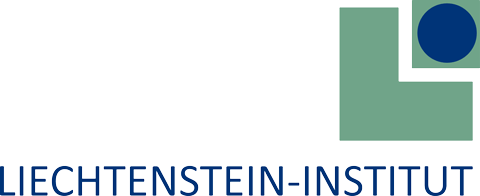Liechtensteinischer Historikerinnen- und Historikertag zum Thema «Familie», 18.10.2024
On October 18, 2024, the II Liechtenstein Historians’ Day took place in the Gamprin Municipal Hall and was met with great interest. The presentations shed light on historical developments and family structures that are still relevant today. The event was aimed at researchers working on the history of Liechtenstein in Switzerland and abroad, as well as Liechtenstein citizens researching historical topics outside the country. The event was also open to anyone interested in historiography in and about Liechtenstein. The lively turnout demonstrated the great interest in the Historians’ Day, which offered thirteen lectures and an opportunity for exchange.
The general theme of the event was the history of the family. Simone Derix, Professor of History at the University of Erlangen-Nuremberg, began her keynote speech with an introduction to current historical family research. She showed that, contrary to older views, the importance of the family has not decreased since the Middle Ages, but rather increased. Local, transnational or global kinship networks in particular are now receiving increased attention in research. Consequences of state marriage and family policies Several presentations showed the consequences of rigid state marriage and family policies.
Katharina Arnegger reported on the judicial assessment and punishment of extramarital and premarital sexual relationships as well as illegitimate births and infanticide on the basis of Liechtenstein interrogation records from the 17th and 18th centuries. Peter Geiger described the case of a marriage ban imposed as late as 1938 by the Triesenberg municipal council and the government due to poverty, which was also supported by the State Court, and which led to the illegitimate birth of their child and prevented the couple from starting a family. Stephan Scheuzger, on the other hand, demonstrated that, contrary to expectations and despite the widespread and deeply rooted Catholic-conservative family and sexual morals in Liechtenstein in the 19th and early 20th centuries, patriarchal ideas of family order did not play a role in decisions on support from the state poor relief system. Lukas Ospelt traced the historical development of the legal ban on violence between spouses, which provided insufficient protection against domestic violence until 2000/2001, and suggested that it be explicitly enshrined in Liechtenstein marriage law. Emanuel Schädler found an original approach to family law by demonstrating the possibilities of depth psychological approaches to a better understanding of the authors of legal texts and thus of the laws themselves.
Challenges in family research
The relationship between academic freedom, access to sources and data protection legislation also poses challenges for contemporary family history research, for example with regard to protection and retention periods. State archivist Nathalie Lorenz presented possible solutions, also in light of the new archive law, which is currently undergoing parliamentary consultation. Benjamin Fischer presented a comprehensive genealogical project with the "Family Chronicle of Liechtenstein Municipalities", which is expected to be available online from the end of 2024. Rupert Tiefenthaler used the estate of the composer Josef Gabriel Rheinberger to address the question of how the transmission of sources by the family influences the image of a person in posterity.
Martina Sochin D'Elia referred in her lecture on the "Image of the expectant child" to the fact that ultrasound technology, which emerged in gynecology in the 1970s, influenced the perception of the expectant child as part of the family - even in the case of stillborn children. She drew a line from the post-mortem images that were widespread in the late 19th century to the current practice of star-child photography. Sina Thöny presented her Master's thesis, which deals with adoption networks between Switzerland, the USA and Saudi Arabia in the 1950s and 1960s. The focus was on a critical examination of the practices of Alice Honegger, an intermediary working from Eastern Switzerland.
Broader perspectives – and continuation in 2026
Outside of the conference theme, two other young historians presented their Master’s theses. Chiara Jehle showed the advertising strategies used by the Hero company after the Second World War to help the tin can achieve a breakthrough in the civilian sector. Annika Hilti traced the emergence of tourism in Liechtenstein around 1870 and its further development up to the 1940s.
In addition to the presentations, the fifty or so attendees also engaged in a lively exchange on aspects of historiography in and about Liechtenstein. The second edition of the event was rated very positively by all participants, meaning that the series of Liechtenstein Historians’ Days will be continued in the fall of 2026.








